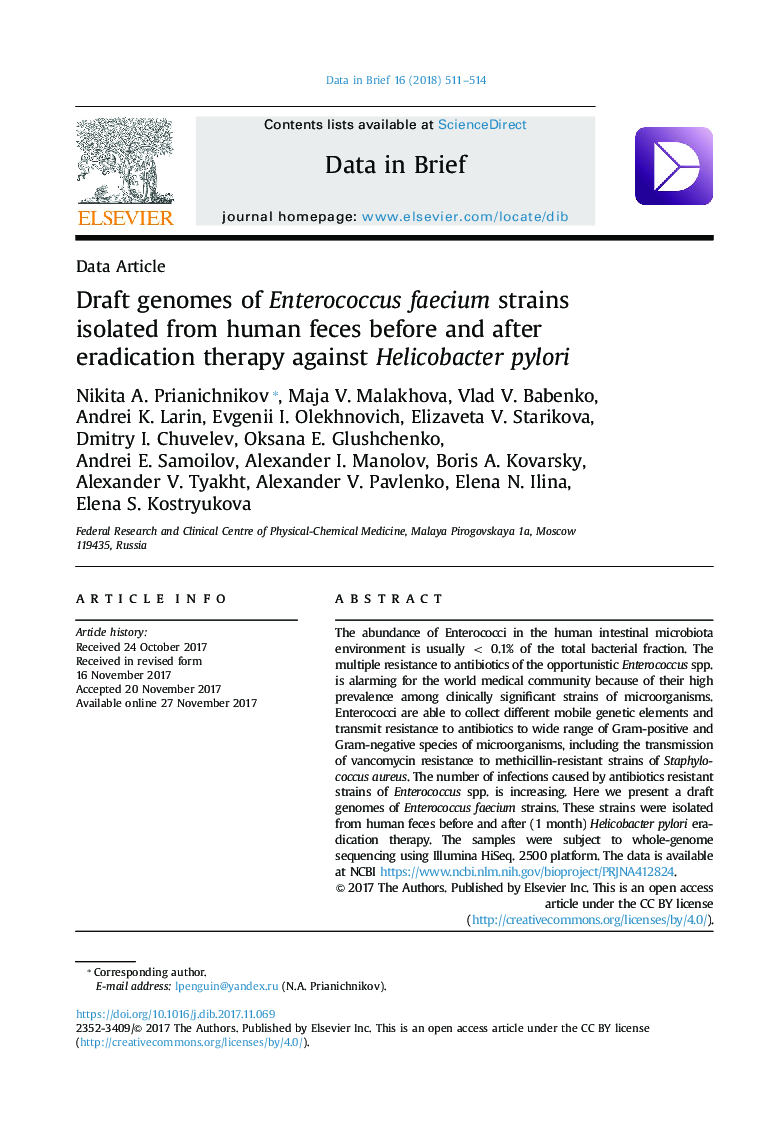| Article ID | Journal | Published Year | Pages | File Type |
|---|---|---|---|---|
| 6597371 | Data in Brief | 2018 | 4 Pages |
Abstract
The abundance of Enterococci in the human intestinal microbiota environment is usually < 0.1% of the total bacterial fraction. The multiple resistance to antibiotics of the opportunistic Enterococcus spp. is alarming for the world medical community because of their high prevalence among clinically significant strains of microorganisms. Enterococci are able to collect different mobile genetic elements and transmit resistance to antibiotics to wide range of Gram-positive and Gram-negative species of microorganisms, including the transmission of vancomycin resistance to methicillin-resistant strains of Staphylococcus aureus. The number of infections caused by antibiotics resistant strains of Enterococcus spp. is increasing. Here we present a draft genomes of Enterococcus faecium strains. These strains were isolated from human feces before and after (1 month) Helicobacter pylori eradication therapy. The samples were subject to whole-genome sequencing using Illumina HiSeq. 2500 platform. The data is available at NCBI https://www.ncbi.nlm.nih.gov/bioproject/PRJNA412824.
Related Topics
Physical Sciences and Engineering
Chemical Engineering
Chemical Engineering (General)
Authors
Nikita A. Prianichnikov, Maja V. Malakhova, Vlad V. Babenko, Andrei K. Larin, Evgenii I. Olekhnovich, Elizaveta V. Starikova, Dmitry I. Chuvelev, Oksana E. Glushchenko, Andrei E. Samoilov, Alexander I. Manolov, Boris A. Kovarsky, Alexander V. Tyakht,
